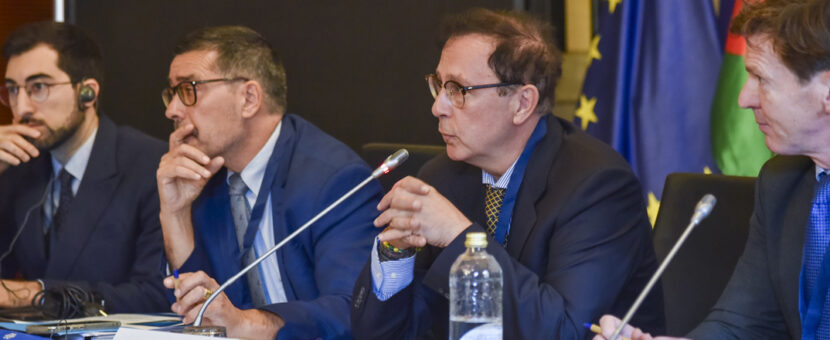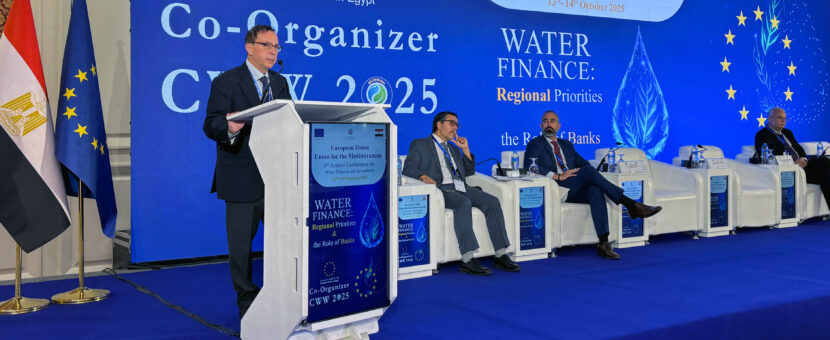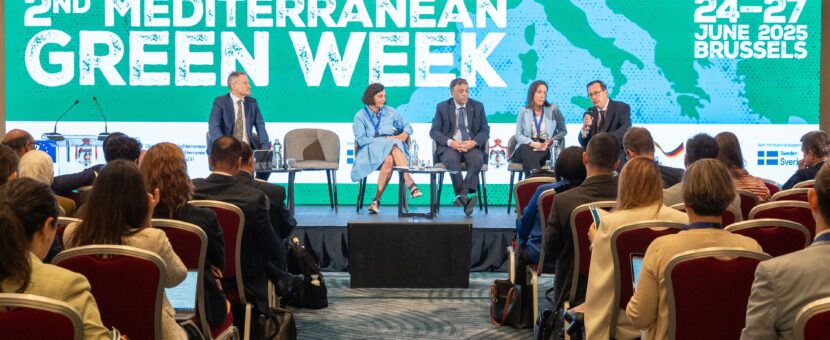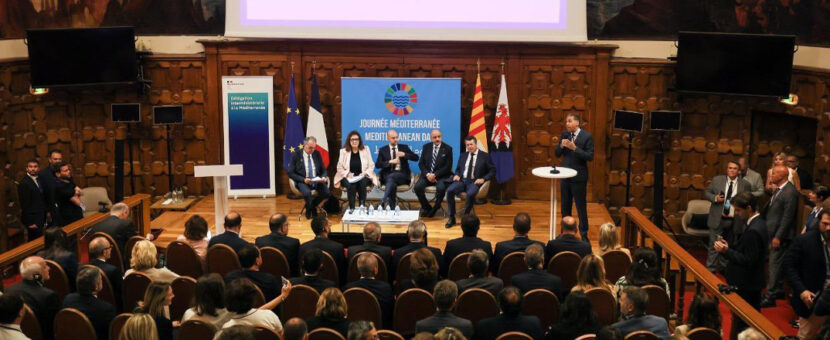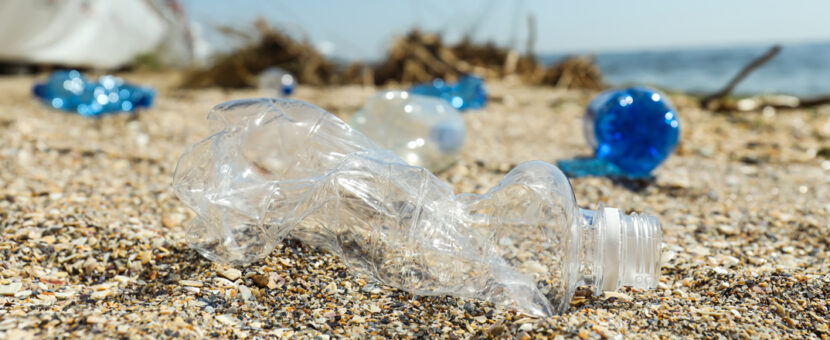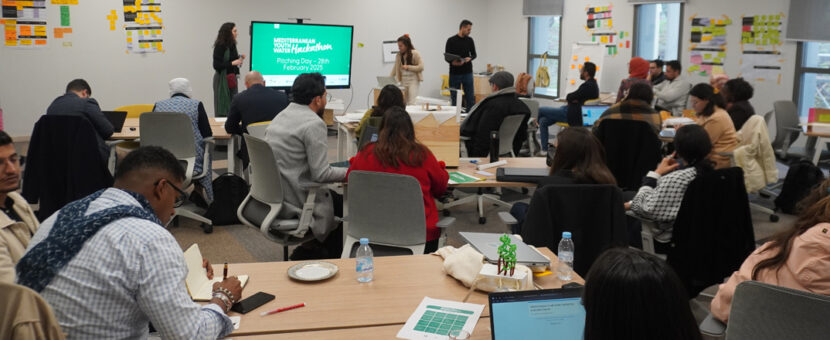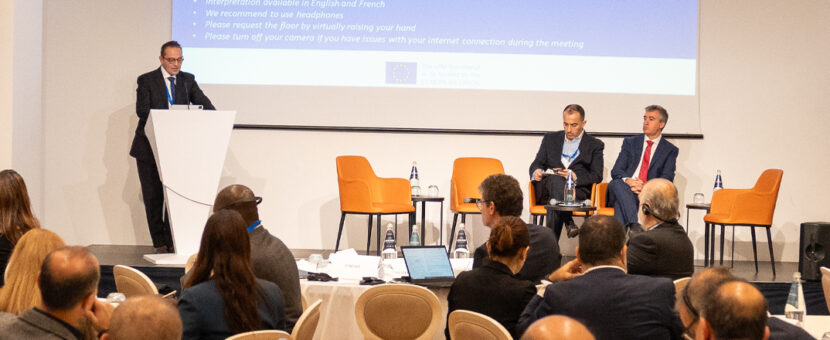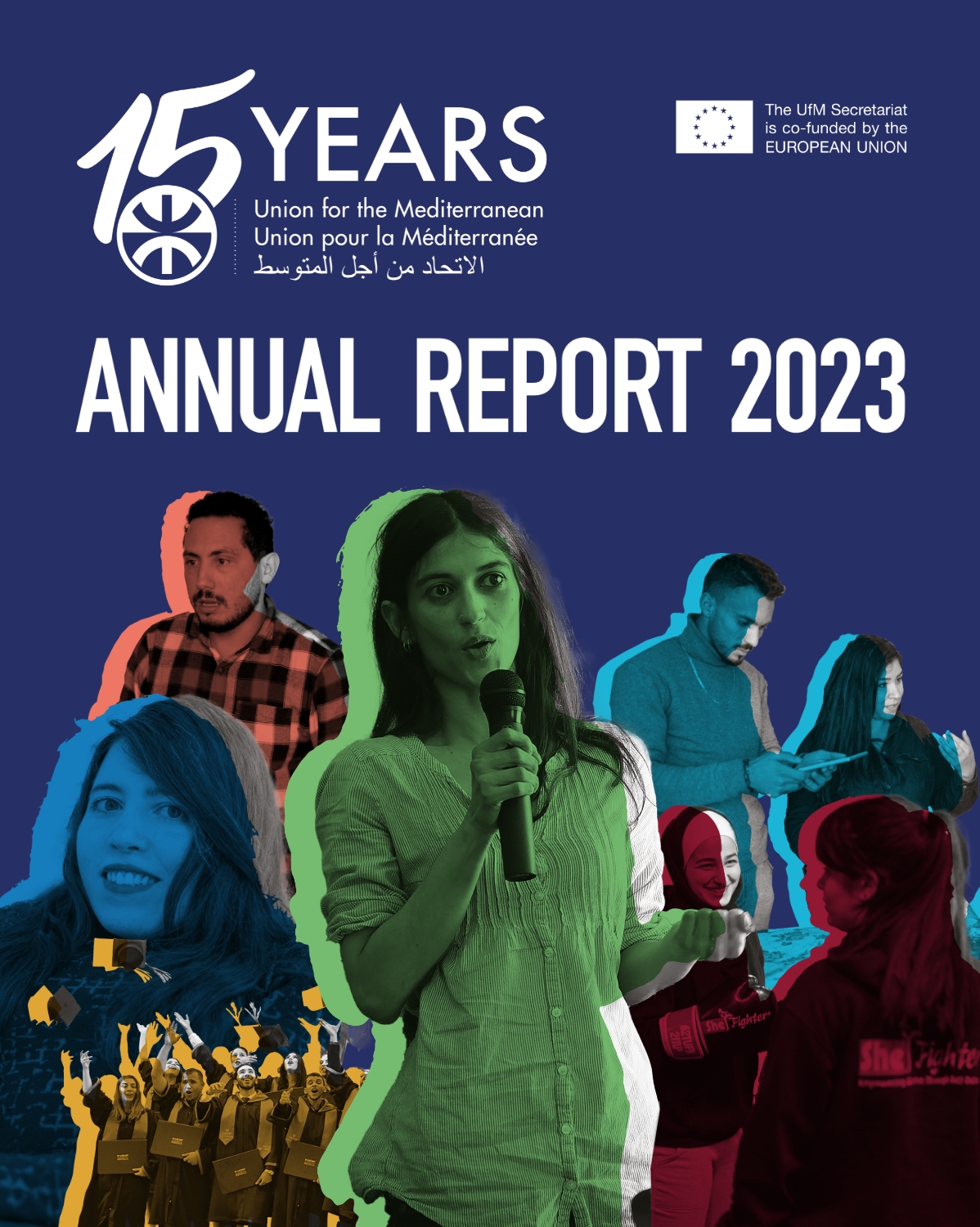Barcelona, 5-6 November 2025 – The 15th Meeting of the UfM Regional Platform on Water (RPWater-15) brought together UfM Member States, regional partners and stakeholders at the UfM headquarters in Barcelona to advance the implementation of the UfM Water Agenda and prepare the ground for the Second UfM Ministerial Meeting on Water, scheduled for 24-25 March 2026 in Rome, Italy. The meeting was organised back-to-back with the Kick-Off Meeting of the 6th Mediterranean Water Forum, co-organised with IME (Institut Méditerranéen de l’Eau) and ONE Water Committee Italy, reinforcing synergies between policy dialogue and multi-stakeholder engagement at regional level. RPWater-15 was… read more
Cairo, 13-14 October 2025. The 6th EU–UfM Annual Conference on Water Finance and Investment in Cairo, the largest-ever gathering on water finance in the Mediterranean, has called for stronger engagement from commercial and development banks to accelerate investments in water resilience across the region. Organised jointly by the Union for the Mediterranean (UfM) and the European Commission in the framework of Cairo Water Week, the Conference has firmly established itself as the leading regional platform to address financing challenges in the water sector. This year’s edition brought together nearly 50 speakers and over 200 participants from governments, financial institutions, international organisations and civil society to… read more
26 June 2025, Brussels — The Union for the Mediterranean (UfM) successfully concluded the 2nd Mediterranean Green Week (24–26 June 2025, Brussels), where policymakers, experts, youth leaders, and stakeholders from across the Euro-Mediterranean region gathered to reaffirm their commitment to a just and inclusive green transition. Key highlights included the announcement of the first-ever UfM Energy & Climate Action Youth Delegates, empowering young leaders to help shape climate and energy policy, drive innovation, and co-create solutions for a just energy transition. High-level sessions and working groups covered critical topics such as clean energy transition, regional energy security, climate adaptation and… read more
Charting the path towards sustainable blue economy: the Mediterranean leading the way, a Union for the Mediterranean-led event on the region’s role in advancing the sustainable use of marine resources to promote socioeconomic development, took place today at the UNOC3 Mediterranean Day in Nice. Government officials, development agencies, regional networks, private sector actors, and civil society showcased innovative financing mechanisms, cutting-edge technologies and replicable initiatives. Spain formally signed an €8.5M contribution to the Blue Mediterranean Partnership (BMP), a multi-donor fund promoted by the UfM that mobilises investments in sustainable blue economy projects in the Southern Mediterranean and Red Sea areas…. read more
The Mediterranean Sea is one of the most plastic polluted areas in the world. The leakage of plastics into the sea is likely to double by 2040 if waste management is not radically improved. Studies also suggest that if current trends continue, there could be more plastic than fish in the sea in 25 years’ time. Approximately 730 tonnes of plastic waste are released into the Mediterranean daily. This is not only a pressing environmental issue, but a socioeconomic and public health challenge as well since plastic pollution is a vector for invasive species, it accumulates in the form of… read more
The Euro-Mediterranean region’s few remaining glaciers have retreated significantly in recent years, be it in the Pyrenees, Alps, Apennines, or Balkan peninsula. Their existence is precarious as many could disappear completely in the coming decades. Melting glaciers on our warming planet are linked to flooding, landslides, sea level rise and droughts. Glaciers are key to healthy ecosystems, but uncertain water flows from rapidly melting ice can negatively impact people and the environment. In a region plagued with water scarcity and quality issues and where the population classified as water poor is expected to increase to more than 250 million by… read more
26-28 February 2025, Fes, Morocco. The Mediterranean Youth Water Hackathon concluded on 28 February 2025, bringing together young innovators from across the region to tackle critical challenges within the Water, Energy, Food, and Ecosystems (WEFE) Nexus. Organised by the Union for the Mediterranean (UfM) and supported by the German Development Cooperation (GIZ), Sida, HLD pour la Méditerranée, and Young Water Solutions, the event was implemented by Cewas, MedYWat, and the EuroMed University of Fes (UEMF). The three-day hackathon provided a dynamic and interactive platform for 15 outstanding teams, composed of 28 young participants, selected from a highly competitive pool of… read more
6-7 February 2025, Malta – The Ad-hoc Meeting of the Drafting Group for the Ministerial Declaration on Water in the Mediterranean convened on 6–7 February 2025 in Malta, hosted by the Maltese Energy & Water Agency (EWA). This meeting initiated the drafting process for the 2nd UfM Ministerial Declaration on Water, as agreed during the 14th Meeting of the UfM Regional Platform on Water in Lisbon, June 2024. The UfM presented a draft outline of the Ministerial Declaration, which was well-received by UfM member states. Participants engaged in discussions along the main themes, and their feedback will be incorporated into… read more
22 January 2025. The Union for the Mediterranean (UfM), the Food and Agriculture Organization of the United Nations (FAO) and the International Centre for Advanced Mediterranean Agronomic Studies (CIHEAM) have reaffirmed their commitment to transforming agrifood systems in the Mediterranean region by renewing their Memorandum of Understanding. Originally signed in 2021, this partnership has already achieved remarkable progress in contributing to agrifood systems transformation efforts in the Mediterranean, and its renewal reaffirms the partners’ shared ambition to drive further progress on the 2030 Sustainable Development Agenda. A strategic collaboration The Mediterranean region is a microcosm of global agrifood system challenges,… read more
Today MedECC, the network of Mediterranean Experts on Climate and Environmental Change, and the Union for the Mediterranean presented the latest scientific findings on the impacts of climate and environmental change on the region’s coastal zones as well as on the Water-Energy-Food-Ecosystems nexus at COP29 in Baku. A third of the Mediterranean region’s population lives in close vicinity to the sea, which is among the world’s regions with the highest probability of compound flooding, and is increasingly exposed to hazards resulting from climate change and environmental degradation. The effects of this phenomenon will be exacerbated in years to come unless… read more

